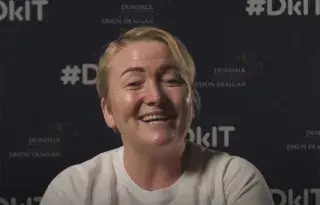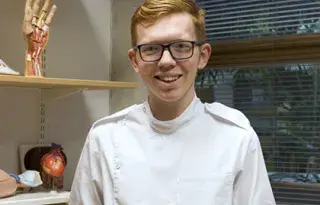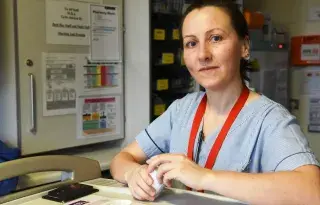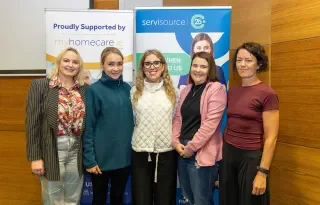BSc (Hons) in General Nursing
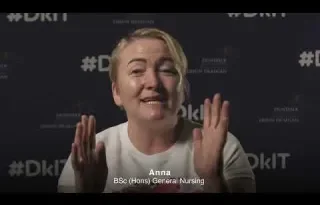
Search to find a different course
Course Overview
Students will learn the theory and evidence-based principles of nursing to help people prevent and overcome illness and enable them to take ownership of their own health and well-being. Students will learn the practice of nursing by working with registered nurses in clinical areas who act as preceptors, assisting students to apply their knowledge and skills to real-life situations.
Students will receive both theoretical and practical classes in Clinical Skills Labs, in preparation for their clinical placements. General nursing placements account for 50% of this course and take place in many clinical settings both in acute hospital and community settings.
This course is offered in partnership with the Health Service Executive, RCSI Hospital Group and other health service providers (HSPs) from both the public and private healthcare sectors.
What makes this course different
Professional Accreditation
Graduates will be eligible for professional registration with the Nursing and Midwifery Board of Ireland (NMBI).
Placements Each Year
Clinical practice placements in each year and a 36-week internship clinical placement in Year 4.
Graduate Prospects
100% of graduates are in full-time employment after 6 months of graduating, the majority of whom are employed by the HSE - (DkIT/HEA Graduate Survey)
Understanding the Industry
General nursing is a vital and multifaceted branch of healthcare focused on providing comprehensive nursing care, support, and advocacy to patients across all age groups and health conditions. General nurses are the backbone of healthcare systems, playing a critical role in promoting health, preventing illness, and assisting in the recovery of patients.
Career Opportunities
Registered General Nurses are currently in high demand at home and abroad. Graduates can apply for positions at Staff Nurse grade.
Future Careers:
- Registered Nurse
- Clinical Nurse Specialist
- Advanced Nurse Practitioner
- Specialist practice, for example, critical care nursing
- Management
- Nurse education
- Research
In these areas:
- Public hospitals in all clinical settings
- Primary and community care settings
- Private hospitals
Course Delivery and Modules
Teaching includes modules on Nursing Studies, Biological Sciences, Psychological and Social Sciences, Research, Law and Ethics, Leadership and Management Skills.
Classroom-based learning is facilitated through lectures, tutorials, and small group work.
Clinical Skills are taught in Clinical Skill Laboratories through simulation-based learning, demonstration, practice, scenario-based examples and objective structured clinical examinations.
Work-based learning takes place on clinical placements under the supervision of registered general nurses.
- Safe Health Care Practice 1
- Natural Sciences for Nursing
- Transition Support and Skills for Success
- Community Nursing
- Foundations in General Nursing Practice
- Specialist Nursing and Maternity Care
- Learning to Learn Skills for Success
- Introduction to Psychology for General Nursing
- Safe Healthcare Practice 2
- Natural Sciences for General Nursing
- Practice Placement 1 and 2
- Applied Physiology and Introduction to Pharmacology
- Introduction to Mental Health
- Introduction to Sociology for General Nursing
- Neurological and Musculoskeletal Nursing Care
- Respiratory Nursing Care
- Cancer and Haematology Nursing Care
- Cardiovascular Nursing Care
- Exploring the Evidence
- Gastrointestinal Nursing Care
- Older Person and Health
- Practice Placement 3 & 4
- Palliative Care and End of Life Care
- Applied Pharmacology in Nursing
- Health Promotion
- Quality, Risk and Safety in Healthcare
- Integrated Care of Chronic Illness
- Renal and Endocrine Nursing
- Role Transition, Leadership and Management in Nursing
- Sexual and Reproductive Health in Nursing
- Critiquing the Evidence
- Ethical and Legal Practice in General Nursing
- Practice Placement 5 & 6
- Applying the evidence
- Contemporary Nursing Practice
- Nursing Management of the Acutely Ill Adult
- Preparation for Professional Practice
- Practice Placement 7
- Internship
Work placement
Clinical practice placements occur in each year of the programme, each placement building up the clinical competence of the student to become a Registered General Nurse. These are facilitated throughout the HSE Louth-Meath, Cavan-Monaghan area.
In 4th year, students are interns for 36 weeks and are employed and paid by the HSE as part of the internship practice placement.
Professional Accreditations
Graduates will be eligible for professional registration with the Nursing and Midwifery Board of Ireland (NMBI).
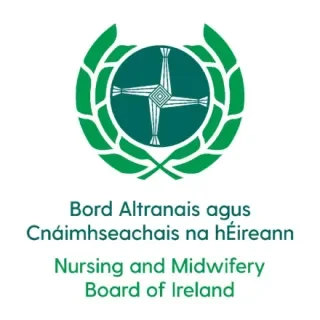
Education Progression
Graduates are also qualified to apply for a range of postgraduate programmes in nursing such as the Postgraduate Cert/Diploma/ MSc in Specialist/Advanced Nursing.
MSc in Professional Nursing
Certificate in Nursing: Recognition and Management of the Deteriorating Adult
Certificate in Adult Respiratory Nursing Practice
Certificate in Comprehensive Advanced Health Assessment
Certificate in Contemporary Palliative Care Practice
Certificate in Emergency Nursing
Fees and Funding
Please find information on fees and funding here: www.dkit.ie/fees
Entry requirements
In addition to the standard entry requirements below, a Laboratory Science subject at Grade O6 or H7 is also required. Applicants from NI/UK require a GCSE pass in a Laboratory Science subject (Biology, Chemistry or Physics) or GCSE Grade CC in Double Award Science. Single award GCSE Science is not applicable.
- Standard Requirements for Leaving Certificate Applicants
- Standard Requirements for UK/NI Applicants
- Standard Requirements for QQI-Further Education Applicants
- Mature Applicants: Minimum of 23 years of age on January 1st of year of application. The PAS carries out an assessment test on behalf of NMBI. Visit NursingCareers.ie for more information.
Please Note: Offers subject to successful Garda Clearance and Health Status Clearance from the Health Service Executive (North East) Occupational Health Unit. Students on the course are also subject to fitness-to-practice regulations.
Recent CAO points
How to apply
Apply on CAO
All standard entry first-year applicants must apply for entry through the CAO. See Important application dates for CAO and information for specific applicant types below:
Advanced Entry & Transfer Applications
Advanced Entry is for applicants who have previous educational achievements and/or work experience and want to be considered for direct entry into year 2, 3, or 4 of a course. This includes students looking to transfer to DkIT from another Higher Education provider.
Ask us a Question
If you have a question about the BSc (Hons) in General Nursing please ask it below and we will get back to you.
Course News
View all NewsDisclaimer: All module titles are subject to change and for indicative purposes only. All courses are delivered subject to demand and timetables are subject to change. Elective Module options will only run subject to student numbers. The relevant Department will determine the viability of each elective module option proceeding depending on the number of students who choose that option. Students will be offered alternative elective modules on their programme should their preferred elective option not be proceeding. Award Options for Common Entry Programmes: The relevant Department will determine the viability of each award option proceeding depending on the number of students who choose either option. If the numbers for one of the Award options exceed available places, students for this option will be selected based on Academic Merit (highest grades).
